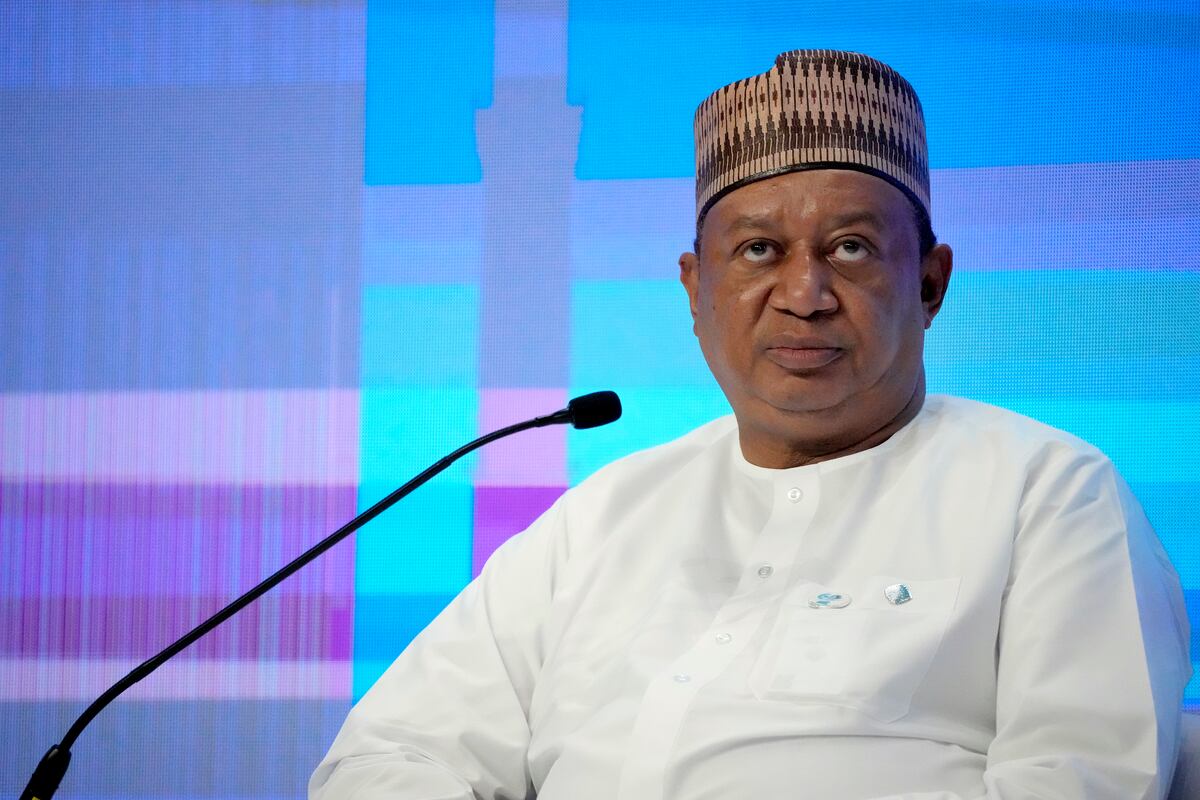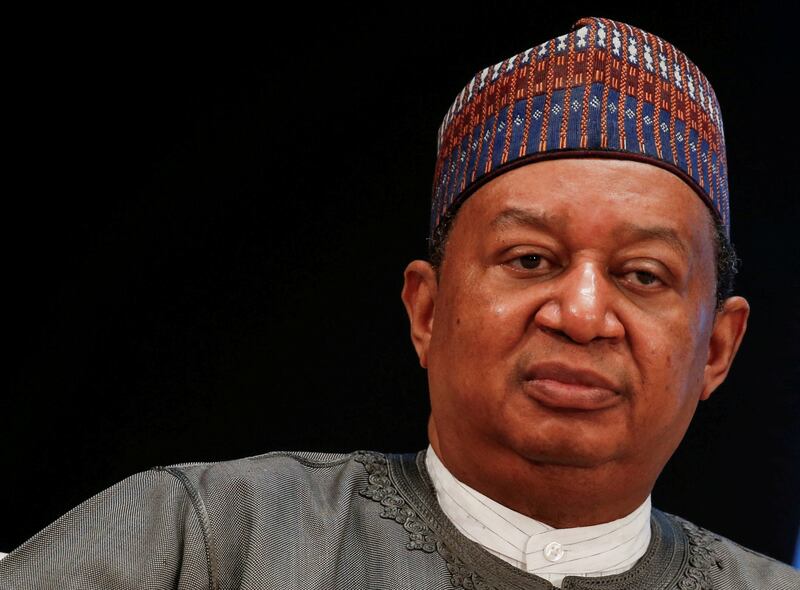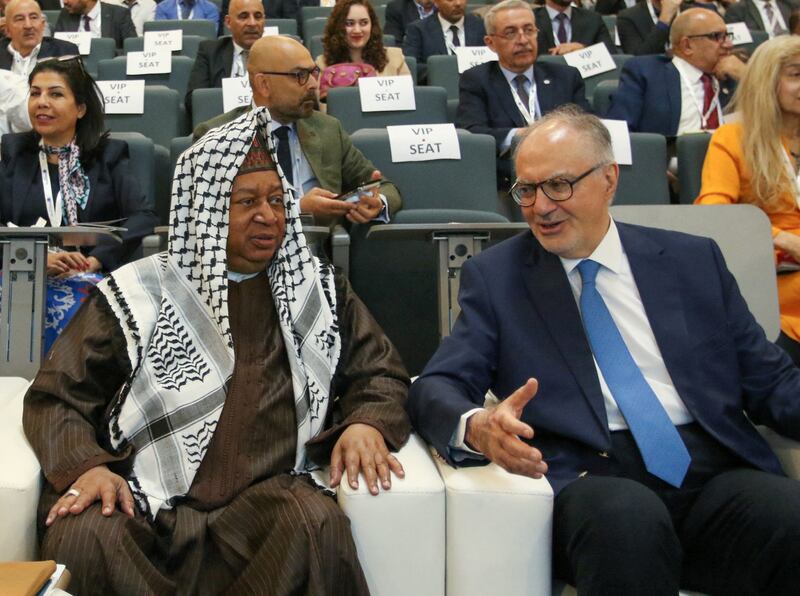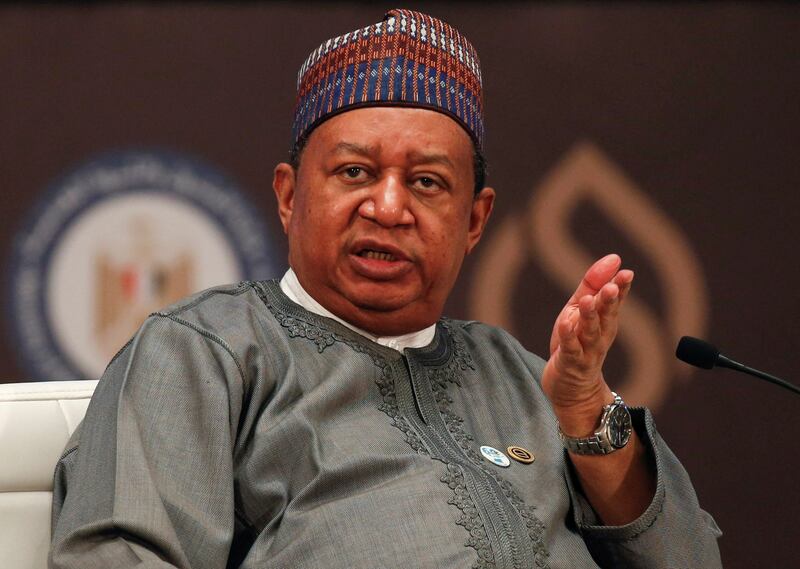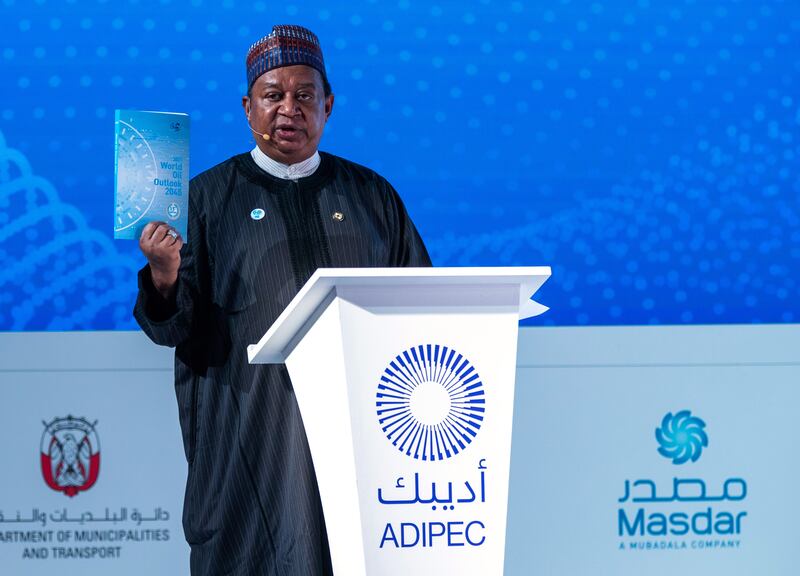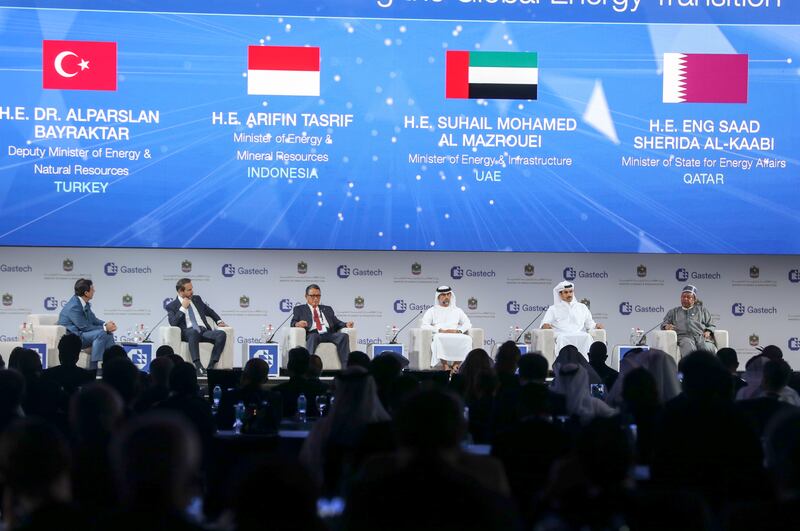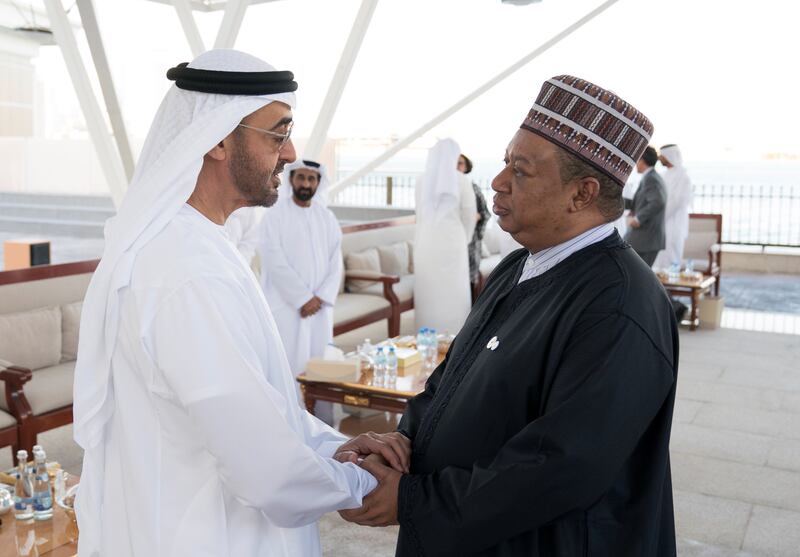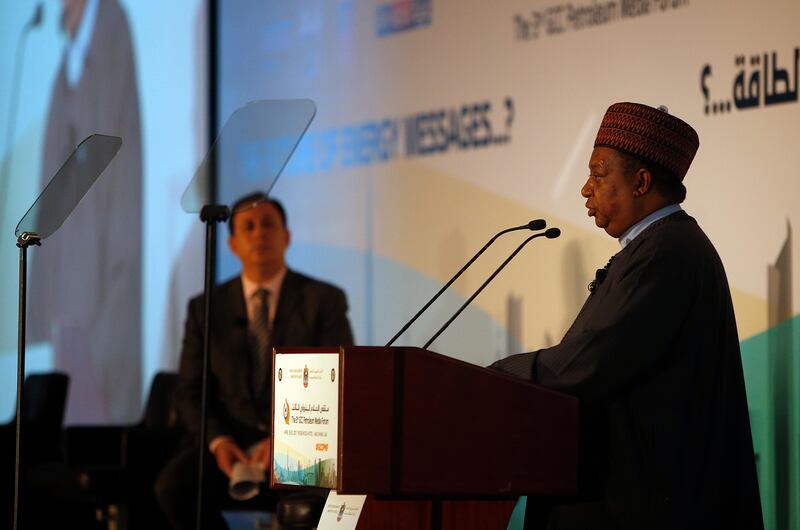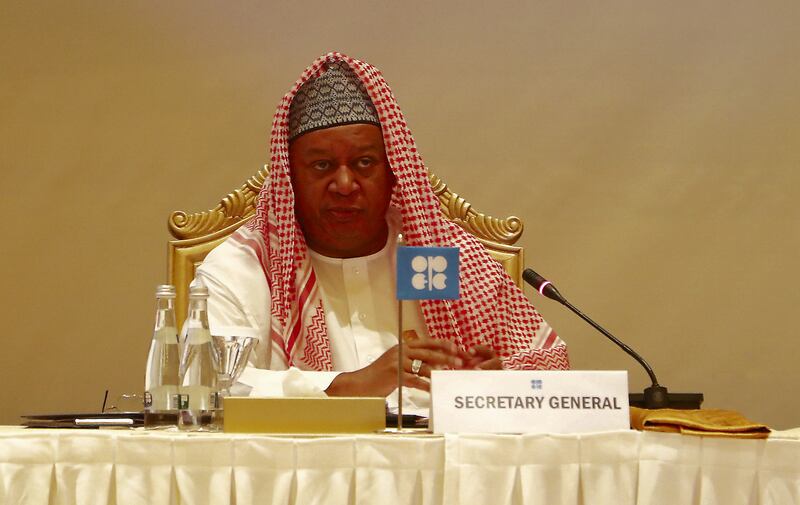Opec secretary general Mohammad Barkindo, who played a key role in the creation of the Opec+ alliance, has died aged 63.
Barkindo, an oil industry veteran, was to leave his role at Opec at the end of July after six years with the Vienna-based organisation.
His death in his native country, Nigeria, was first announced by Mele Kyari, group managing director of the Nigerian National Petroleum Corporation (NNPC), on Wednesday morning.
“We lost our esteemed Dr Muhammad Sanusi Barkindo,” Mr Kyari tweeted.
Barkindo died at about 11pm on Tuesday, Mr Kyari said. His death is “a great loss to his immediate family, the NNPC, our country Nigeria, Opec and the global energy community”, he said.
Opec paid tribute to Barkindo and called him “a visionary leader and an eloquent communicator who played a key role in forming the historic Declaration of Co-operation at the end of 2016”.
A number of countries, including Saudi Arabia, Iraq, the UAE, Kuwait, Iran and Russia, signed the declaration six years back to co-operate in cutting production to stabilise oil markets.
The group last week agreed to increase production in August by 648,000 barrels per day, endorsing a plan announced earlier in June. The latest output increase fully restores the 5.8 million bpd output that was cut during the Covid-19 pandemic.
“He served the organisation with great distinction and helped it successfully navigate through two major industry downturns [2015-2016 and 2020-2021], was instrumental in the setting up of the Charter of Co-operation and was a consummate diplomat in further advancing dialogue and co-operation with a variety of industry stakeholders,” Opec said.
Opec chief Mohammad Barkindo dies aged 63
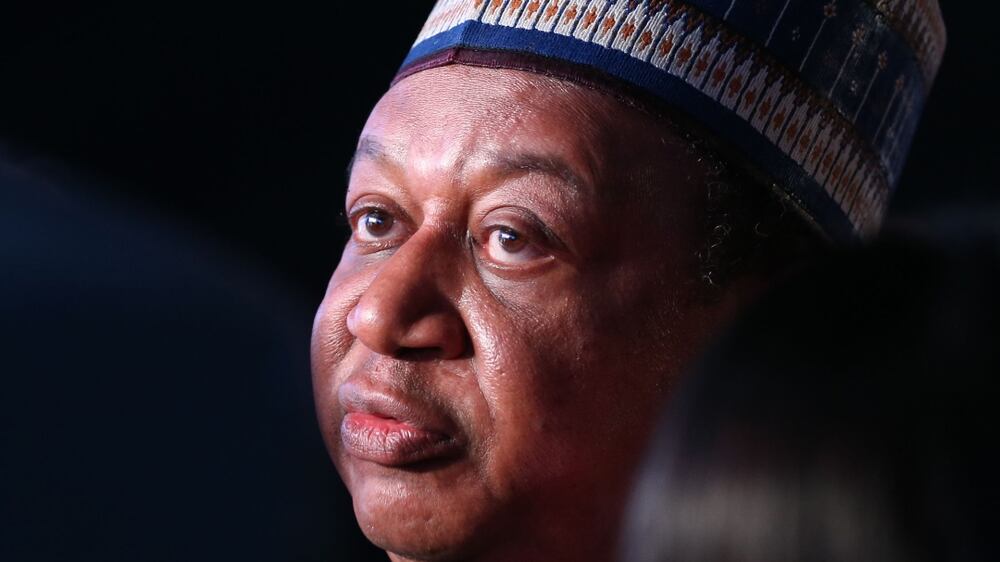
Barkindo took charge as head of Opec in 2016 and his tenure was marked by some extraordinary events such as volatile markets, global shocks, the formation of the Opec+ alliance with Russia and other non-Opec producers, the coronavirus pandemic and Moscow’s decision to invade Ukraine.
His death came as a shock to many, especially those in the oil and gas industry.
UAE Energy Minister Suhail Al Mazrouei said in a tweet: “We highly honour and appreciate his distinguished work for the organisation during hard and turbulent times. We send our deepest condolences to his family, friends, [the] petroleum community and the Nigerian government.”
Iraqi Oil Minister Ihsan Abdul Jabbar said “Barkindo was a friend to Iraq and loved its people”, according to an Iraqi News Agency report.
“He was keen on strengthening Opec’s role in stabilising oil markets in the face of challenges that had stormed the oil sector and the global economy.”
In his tribute to Barkindo, Timipre Sylva, Nigeria’s Minister of State for Petroleum Resources, said: “This is a great loss to Nigeria, to Opec, to the energy sector and, most compassionately, to his family, which we have in our prayers and thoughts.”
Azerbaijan’s Energy Minister Parviz Shahbazov also paid tribute to Barkindo and remembered his “invaluable services in the regulation of the oil market in the most difficult period”.
“The renaissance of the organisation [Opec] coincided with his years as the secretary general; the simultaneous completion of his mission in Opec and in life was a rare regularity,” Mr Shahbazov tweeted.
Azerbaijan is part of the Opec+ alliance.
Born in Adamawa State in Nigeria, Barkindo’s career spanned more than four decades, starting from the early 1980s when he had stints with the NNPC, Nigeria’s energy and foreign ministries, Duke Oil and Opec.
He attained a postgraduate diploma in petroleum economics from Oxford University in the UK in 1988 and a master in business administration degree in finance and banking from Washington University in the US in 1991.
Barkindo was Nigeria’s delegate to Opec ministerial conferences from 1986 to 2010, as well as Nigeria’s Opec governor from 2009 to 2010, according to his biography on Opec’s website.
He took part in the Atlantic Council’s Global Energy Forum in Dubai in March and stressed the importance of boosting investments in the oil and gas sector to meet growing energy demand globally.
Investments in the sector “dropped 50 per cent” as a result of the impact of the downturn caused by lower oil prices in 2015 and 2016 and “we had not recovered fully before Covid struck in 2020, and we saw in 2020 capital investments” contract by about 30 per cent and stay flat in 2021, he said at the time.
Barkindo was expected to join the Atlantic Council later this month as a distinguished fellow in the global energy centre after the conclusion of his tenure at Opec.
